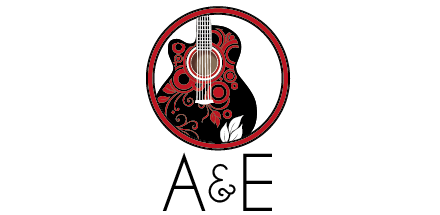Every year during the week of Black Friday, when we are inundated with advertising from big box stores and national chains, West Of usually focuses an edition on small businesses that are in their infancies. Furniture makers. First-time restaurateurs. Bow-tie manufacturers.
Not this year. Instead, with so much emphasis, money, and expertize working on West Ashley’s revitalization process, the focus is on “bigger” small business owners who have had some serious success and planning to further expand their efforts in West Ashley. They are the trend-setters who have the vision which very well may be what’s steering West Ashley’s revitalization more so than any politician or planner.
The one question they were asked was, what needs to be done to help further spur West Ashley’s commercial future?
And every one of them talked about issues circling the same issue: traffic.
Mark Cumins co-owns two restaurants in West Ashley with his business partner Jerry Scheer, the venerable TBonz Gill and Grill on Old Towne Road and Pearlz Little Oyster Bar in Avondale.
The two will soon open a third restaurant, Kaminsky’s Dessert Café just up from Pearlz on Magnolia Road. Cumins and Scheer’s parent company, Homegrown Hospitality Group’s offices are located across the street from TBonz. The group owns nine concepts that include more than 20 restaurants throughout several states, and a boutique hotel.
“The one thing that City Hall has to look at first is that traffic patterns throughout West Ashley are so poor,” says Cumins. “Look at Ashley Oaks Plaza at the corner of Wappoo Road and Highway 61, where the new True Value Hardware store is: how is anyone supposed to get into their parking lot?”
At most hours, cars line up at that light, or race through having finally been freed by the long lights at the intersection of Sam Rittenberg Boulevard and Highway 61, West Ashley’s busiest intersection.
Cumins’ point boils down to this, a great business can bring great products to market, but if shoppers can’t get to the market it’s all for nothing.
City planning director Jacob Lindsey said that City Hall has wanted to help, but didn’t have the most important tool to make big changes: money. But that is changing, he says, as a special tax zone for the Sam Ritt commercial corridor has been set and will bring millions in public dollars to bear on infrastructure and other improvements in that area.
Cumins would like to see the city follow through on plans it’s had on the books for years, specifically the plan to close the Savannah Highway end of Magnolia Road in front of Gerald’s Tries and Brakes. Cooked up over a decade ago, that plan would stop cars zooming into that 45-degree turn while also creating more parking for the popular Avondale Shopping District.
Similarly, City Hall has for years been touting the revitalization of Avondale as the model it wants to see replicated throughout West Ashley. Which is odd, since City Hall nor its planning department had anything to do with its success: it was a market solution that evolved from local businesses.
In fact, the only “national” chain presented in Avondale is Mellow Mushroom, a franchise that allows each individual restaurant to have it’s own local feel. One of the Mellow Mushroom Avondale’s owners lived in a house on the left side of the 17th fairway of Shadowmosss Country Club for years. And that owner has since moved closer in and shops every week at the Harris Teeter in the St. Andrew’s Shopping Center.
Contrast that ‘locals-first” paradigm with so many of the shopping centers and districts throughout West Ashley, which are absolutely dominated by national businesses.
Mike Kulick and Kelly Chu agree that there is little chance the Avondale success can be replicated anywhere else in West Ashley. Why? Geography.
And traffic.
Mike Kulick and his wife Jen own VooDoo Tiki Bar and Lounge in Avondale, as well as have their corporate offices on St. Andrews Boulevard, and are on the cusp of announcing a major expansion in West Ashley. They also own Tattooed Moose restaurants located downtown and on Johns Island.
Chu and her husband Tony own local Asian fave Red Orchids Bistro in the Ashley Landing shopping center, across the street from TBonz. They also have a small manufacturing site for her award-winning ice cream Cirsea, and are looking at expanding to a brick-and-mortar retail site in West Ashley in the coming months.
Kulick argues that Avondale was a “perfect storm” of proximity to downtown — higher housing density, and down real estate market that brought many young families with expendable incomes to the area.
“The fact is the further out you get in the suburbs of West Ashley, the more you have to rely on driving everywhere you go,” says Kulick, who used to ride a scooter to and from his former home off of Magnolia Road to his bar, and then to the grocery store.
“Don’t kid yourself, there is no one going to ride a bike from the Hunt Club neighborhood down Bees Ferry to whatever gets built at the West Ashley Traffic Circle,” says Kulick. “It’s just too far.”
Chu uses the buzzword “inter-connectivty” to explain what Avondale worked and why other areas will be hard pressed to ape its paradigm. She says that, like downtown, Avondale benefitted from walking and bicycle traffic. “It’s about accessibility beyond getting into a car,” says Chu, adding that buses could be very helpful on creating a rosier commercial future for West Ashley.
“I cannot overemphasize the need for a more robust public transportation system in West Ashley: that is a drum I will beat all day long,” agrees Kulick, who says the key will be more and more regular routes between the entire city’s “nodes.”
Perhaps the biggest “node” in West Ashley is Citadel Mall, bordered by Savannah Highway, Interstate 526, Sam Rittenberg Boulevard, and roughly by Highway 61. If all roads lead to Rome, then Citadel Mall is West Ashley’s Rome, except for the past 10 years, when it fell into the doldrums financially.
That appears to be turning around, as local investor Richard Davis of Trademark Properties has purchased it and just recently inked a deal with the Medical University of South Carolina to transform its former JC Penny into an outpatient hospital.
Davis declined to make comment for this story. He says he wanted to wait out of respect for the work being done by the West Ashley Revitalization Commission (WARC) and the national consulting firm hired to help the 19-members craft a series of recommendations.
One of the major criticisms Bill Moody, a City Councilman representing West Ashley, has had of the WARC effort has been is that it’s developing more a transportation plan than a revitalization plan. Worse still, from his perspective, has been the focus on “bikes and buses.”
City planner Lindsey says that City Hall’s second focus is to make sure businesses going forward will have sufficient parking. Like Kulick, Lindsey isn’t so sure that autonomous cars will spell much relief, as continued migration to the area could lead to a “net zero” change in traffic.
But there seems to be a significant disconnect of what needs to happen in West Ashley between city officials and those with a significant amount of skin in the game.
So, which will be more important in the near-future: traffic control and smart growth or parking and reliance on automobiles?













